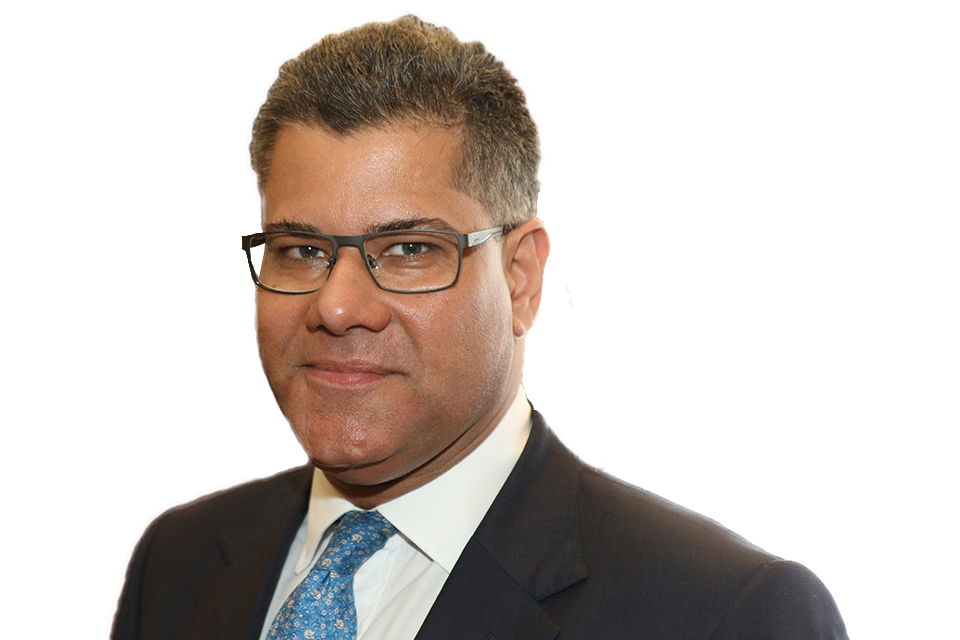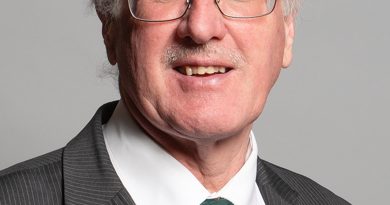Alok Sharma – 2020 Speech at UN Climate Change Dialogues
The speech made by Alok Sharma, the Secretary of State for Business, Energy and Industrial Strategy, on 4 December 2020.
Greetings to everyone on this event and thank you so much for dialling in. Many of you will be dialling in from places where it is late in the day or really very early. So, thank you so much for your commitment, we really are incredibly grateful.
At the opening of the Climate Change Dialogues last Monday, I made the point that, despite the great difficulties we have faced this year, it is absolutely vital that we that maintain momentum on climate action.
Over the past months I’ve spoken to very many colleagues across the world and individual governments,
I have spoken at almost 50 events virtually. And whilst we’ve all acknowledged the need to do as much as we can to support our populations, protect jobs, protect livelihoods, in terms of our individual countries, it is also the case that climate change hasn’t taken time off. The clock is still ticking and those two hands on the face of the clock are getting closer to midnight.
So, it is important that we keep encouraging ambition across the world. Archie talked about some of the areas that we are looking for leaders to come forward at the Climate Ambition Summit on 12 December. What we want to do is to encourage that ambition on mitigation, on adaptation and support.
So that we are in prime position to realise the full potential of the Paris Agreement in Glasgow next year. We absolutely owe that not just to our generation but actually generations to come in the future.
All of you are vital, you’re absolutely integral to that. That is how we’re going to make progress at COP26. And I’ve said this before but I want to repeat this point – the UK and our friends in Italy may have the presidency of COP but success at COP is going to belong to each and every one of us as individuals and as countries.
It’s only by working together that we will succeed in tackling climate change.
Whether that’s in Governments, regions, cities, indigenous peoples, business, civil society, and or as individuals, it is going to be vital that we all play our part.
That is why events like this Open Dialogue are so important. Bringing together representatives from a whole range of constituencies.
And it is also why our COP26 campaigns are bringing people together to focus on these five critical areas: clean energy, clean transport, adaption and resilience, nature based solutions, and finance, which ties the whole thing together.
I’d like to speak for one moment directly to all our representatives from observer organisations.
The reality is reaching net zero and building our resilience will only be achieved through this joint effort.
And for this, you are absolutely vital. You are vital for helping to raise awareness, for generating support, and asking us to do more.
And very rightly you encourage us to go further.
And help to create the conditions for the Parties to raise their ambition around the negotiating table.
We saw this in Paris in 2015.
And we continue to see this drive for us to go further today as well.
For me what is really important is that you are working on the ground. You are building that resilience you are helping us reduce emissions.
You are creating the changes we need.
Whether that is indigenous leaders applying their knowledge to protect our biodiversity and ecosystems.
Or indeed, International Trade Union Confederation’s campaign to climate-proof work and jobs.
Or the advocacy we have seen from YOUNGO members around the world.
Your role within the official UNFCCC process is equally important. It really matters, and it really matters to me on a personal level.
And I want to thank the nine UNFCCC constituency groups for the leadership they have shown.
As you know, we are committed to a comprehensive agreement in Glasgow.
One that covers each of the key issues.
And, really importantly, any agreement has to be informed by the voices that have too often been marginalised. I make this point again and again in public and private.
By representing those voices. And by contributing your expertise and support. You strengthen our work.
Whether that’s the Women’s Environment and Development Organisation. Supporting equal participation in UN climate negotiations. Through the Women Delegates Fund.
Or indeed, the expertise of the Women and Gender Constituency. Which, at COP25, informed the renewed Gender Action Plan, placing gender equality at the heart of climate action.
This is again a really important thing we need to keep pressing on.
The UK has committed to implementing the Plan. And I urge all Parties to do the same.
I am very much committed to working with observers to make COP26 a success.
I’ve had quite a few engagements over the past few months and will absolutely be ramping up the engagement in the year coming up to COP26.
That is why I spoke at the Local Governments for Sustainability’s event in October. And it was about encouraging climate ambition among city leaders.
And supported Indigenous People’s Day in August. To emphasise how important Indigenous People’s knowledge and experiences are in tackling the climate crisis that we all face.
I know our Italian partners are working closely with YOUNGO too. Preparing for Youth COP, and hosting the Youth4Climate series. And I was very pleased to join one other their webinars recently.
It’s also really good to see the Research and Independent NGOs working closely with our COP26 universities network. Ensuring the academic sector, which is so important, and universities play a role in delivering a successful COP.
And of course, universities are part of the Race to Zero campaign as well.
So I am really looking forward to hearing from you in today’s discussion on the vital issue of the green recovery.
Urging countries to build back better in response to the coronavirus pandemic is absolutely central to the UK’s COP26 presidency.
But we really have to do this in a way that involves the whole of society. We have to excite everyone across the world and ensure that COP26 really has meaning for them.
Just as our work to reduce emissions and build resilience, we must take all interests into account.
That means bringing in the voices of civil society, young people, Indigenous Peoples, businesses and others in government decision-making.
And here, non-state actors can help.
So I urge all parties to look at how you can work more closely with observer groups and non-state actors. To increase ambition in your countries in a way that is fair to all.
And I am keen to hear examples of successful initiatives from both Parties and Observers today.
By listening to each other, learning from each other, and working together, we can boost ambition, take action, and strengthen this process. All of this will help pave the way for a successful COP26.
Thank you so much for being with us today.


